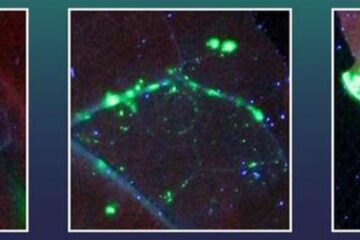New Recombinant Production of Design Rhamnolipids – Optimized Biosurfactant Fermentation Process

Biosurfactants have attracted increasing interest since they show a number of advantages over surfactants of petrochemical origin in terms of ecological acceptance, low toxicity and sustainability. Biosurfactants also have a huge application potential, for example in chemical and pharmaceutical industry or as emulsifier in cosmetics and foods.
Among the best established biosurfactants are the rhamnolipids. Rhamnolipids are glycosides with one (mono-rhamnolipid) or two rhamnose-units (di-rhamno-lipid) as the glycon portion and one to three β-hydroxy-fatty acid moieties as the aglycon portion. Rhamnolipids are naturally produced by two rhamnosyl-transferases encoded by rhlA, rhlB and rhlC by the opportunistic pathogen Pseudomonas aeruginosa. The rhlA and rhlB genes form an operon, encoding subunits A and B of rhamnosyltransferase 1, while rhlC encodes rhamnosyltransferase 2. In particular, the present invention provides a genetically modified non-pathogenic host cell that may be employed for production of favoured rhamnolipids in high yields. Use of the modified host cell allows selective production of various rhamnolipids, e.g. mono- or dirhamnolipids and a various length of fatty acids. As a first example, a bacterial host cell includes a rhlA gene, a rhlB gene or orthologs thereof. The genes are under the control of a heterologous promoter. In a further embodiment, the host cell may preferably also contain a rhlC gene, or an ortholog thereof. The biotechnical production process is in addition optimized at varying temperature conditions.
Weitere Informationen: PDF
PROvendis GmbH
Tel.: +49 (0)208/94105 10
Ansprechpartner
Dipl.-Ing. Alfred Schillert
Media Contact
Alle Nachrichten aus der Kategorie: Technologieangebote
Neueste Beiträge

Immunzellen in den Startlöchern: „Allzeit bereit“ ist harte Arbeit
Wenn Krankheitserreger in den Körper eindringen, muss das Immunsystem sofort reagieren und eine Infektion verhindern oder eindämmen. Doch wie halten sich unsere Abwehrzellen bereit, wenn kein Angreifer in Sicht ist?…

Durchbruch bei CRISPR/Cas
Optimierte Genschere erlaubt den stabilen Einbau von großen Genen. Großer Fortschritt an der CRISPR-Front. Wissenschaftlern des Leibniz-Instituts für Pflanzenbiochemie (IPB) ist es erstmals gelungen, sehr effizient große Gen-Abschnitte stabil und…

Rittal TX Colo: Das neue Rack für Colocation Data Center
Rittal TX Colo: Flexibel, skalierbar und zukunftssicher Mit der zunehmenden Digitalisierung und künftig auch immer mehr KI-Anwendungen steigt der Bedarf an Rechenleistung signifikant – und damit boomt der Colocation-Markt. Unternehmen…

















